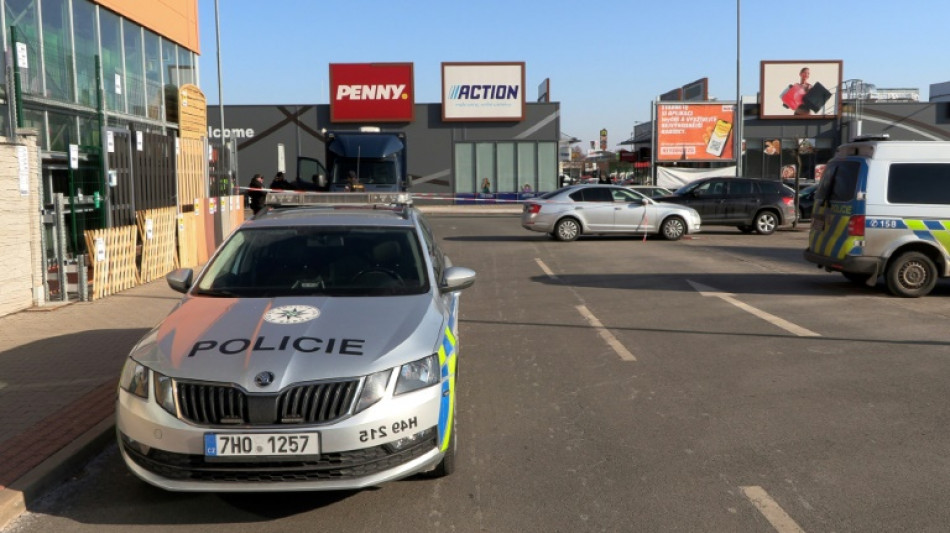
-
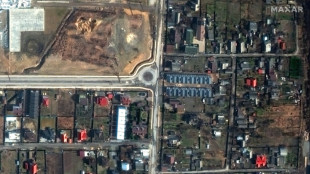 How AFP has used data analysis to cover the Ukraine war
How AFP has used data analysis to cover the Ukraine war
-
Paris says US envoy pledges not to 'interfere' in France affairs
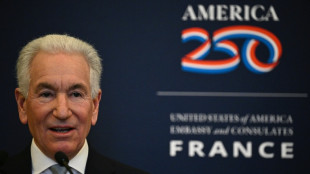
-
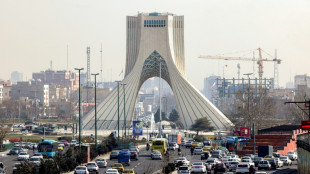 Iran says students must respect 'red lines' after protests
Iran says students must respect 'red lines' after protests
-
Italian biathlete Giacomel has heart surgery after Olympic withdrawal
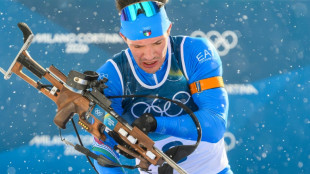
-
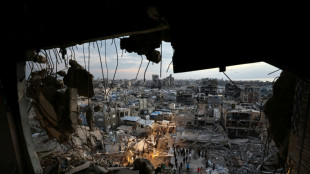 Gazans salvage ancient books in mosque library damaged by war
Gazans salvage ancient books in mosque library damaged by war
-
Farhan scores 63 as England restrict Pakistan to 164-9
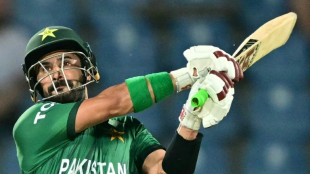
-
 Stocks bounce as traders assess AI fallout, tariffs
Stocks bounce as traders assess AI fallout, tariffs
-
Brazil court tries politicians over hit on Black councilwoman
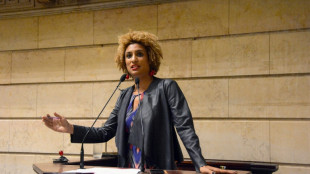
-
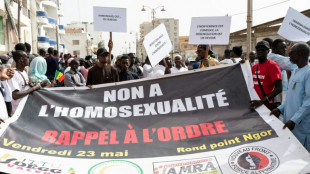 Senegal PM vows to double penalty for same-sex relations
Senegal PM vows to double penalty for same-sex relations
-
UK govt backs releasing documents tied to 'rude' ex-prince Andrew
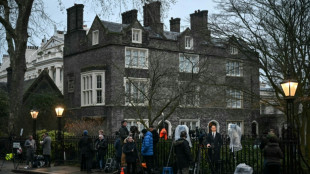
-
 Novo Nordisk to slash prices of weightloss drugs in US
Novo Nordisk to slash prices of weightloss drugs in US
-
Welllage says Sri Lanka can rescue T20 World Cup campaign
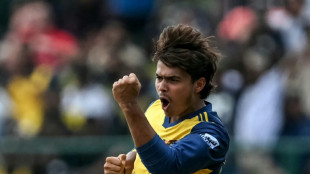
-
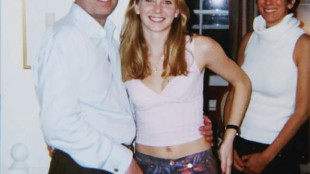 UK's royal protection officers urged to speak up in Epstein probe
UK's royal protection officers urged to speak up in Epstein probe
-
Aid groups petition Israel's top court to halt ban on Gaza, West Bank ops
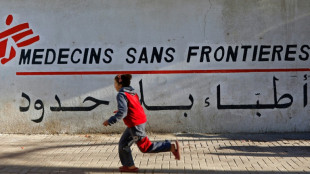
-
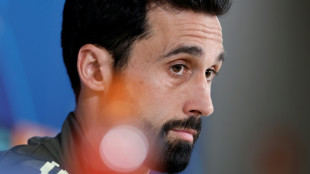 UEFA can make fight against racism more than a slogan: Real Madrid's Arbeloa
UEFA can make fight against racism more than a slogan: Real Madrid's Arbeloa
-
Bali flooding prompts tourist evacuation: official
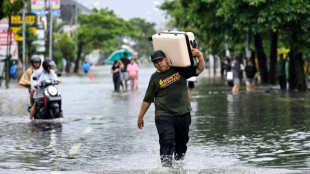
-
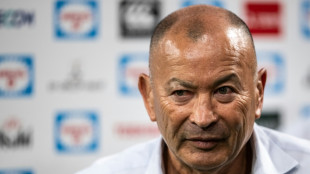 Jones says Borthwick's 'title-decider' comments behind England collapse
Jones says Borthwick's 'title-decider' comments behind England collapse
-
UK fines Reddit nearly $20 mn over children's data failures

-
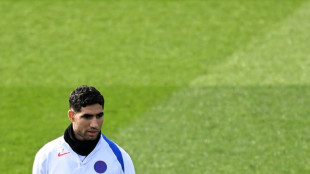 PSG star Hakimi faces trial for alleged rape
PSG star Hakimi faces trial for alleged rape
-
Netflix, Prime and Disney+ face UK broadcasting regulation

-
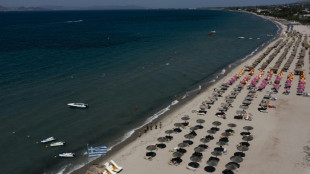 Greece set new tourism record in 2025
Greece set new tourism record in 2025
-
Zelensky says Ukraine unbroken after 4 years, but Russia vows to fight on
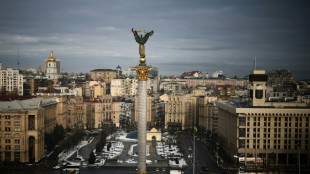
-
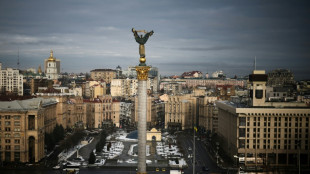 Zelenksy says Ukraine unbroken after 4 years, but Russia vows to fight on
Zelenksy says Ukraine unbroken after 4 years, but Russia vows to fight on
-
Snoop Dogg 'can't wait' for first Swansea visit
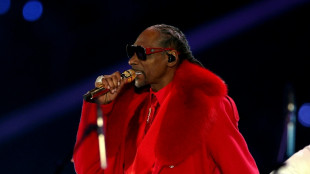
-
 Stocks fluctuate as traders assess AI fallout, tariffs
Stocks fluctuate as traders assess AI fallout, tariffs
-
Post-it maker 3M faces Belgian trial over 'forever' chemicals

-
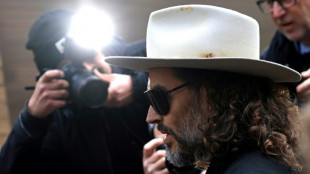 UK comedian Russell Brand pleads not guilty to new rape, assault charges
UK comedian Russell Brand pleads not guilty to new rape, assault charges
-
Duterte drew up 'death lists', boasted about murders: ICC prosecutor
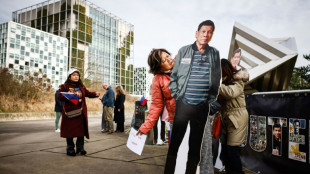
-
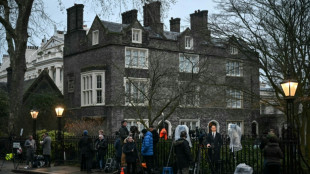 UK govt urged to release documents linked to ex-prince Andrew
UK govt urged to release documents linked to ex-prince Andrew
-
Rights group slams treatment of viral Japanese monkey

-
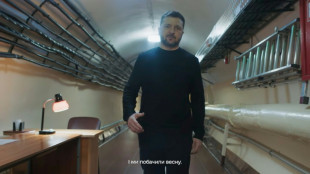 Inside the bunker where Zelensky led response to Russian invasion
Inside the bunker where Zelensky led response to Russian invasion
-
France demands explanation from US envoy over 'surprise' no-show
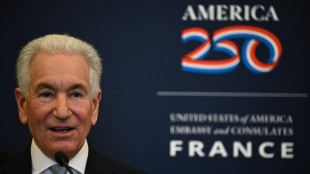
-
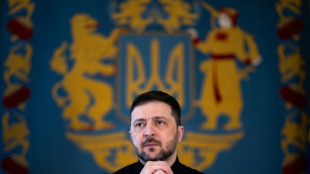 Putin failed to achieve goals in Ukraine, Zelensky says on war anniversary
Putin failed to achieve goals in Ukraine, Zelensky says on war anniversary
-
China tightens Japanese trade restrictions as spat worsens
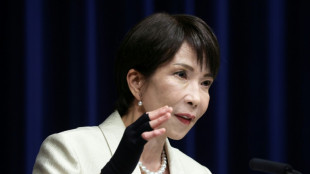
-
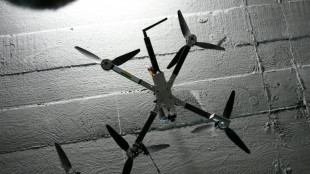 Ukraine war exhibition opens at Berlin Nazi bunker museum
Ukraine war exhibition opens at Berlin Nazi bunker museum
-
Jihadist threat puts eastern Senegal on edge
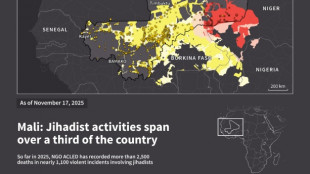
-
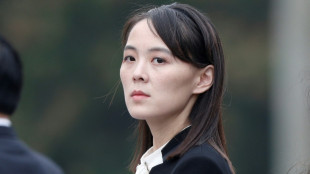 Kim Yo Jong: the powerful sister behind North Korea's supreme leader
Kim Yo Jong: the powerful sister behind North Korea's supreme leader
-
North Korea ruling party promotes Kim Jong Un's younger sister

-
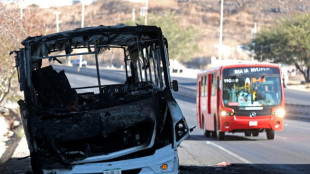 Mexico's Jalisco cautiously tries returning to normal after cartel violence
Mexico's Jalisco cautiously tries returning to normal after cartel violence
-
Mexico's violence-hit Guadalajara to host World Cup games
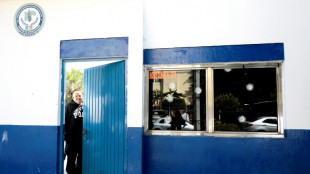
-
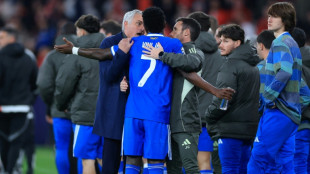 Mourinho's Bernabeu homecoming upended by suspension, racism row
Mourinho's Bernabeu homecoming upended by suspension, racism row
-
China targets Japanese companies over military ties
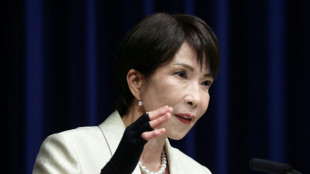
-
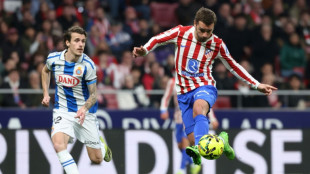 Griezmann in talks to join MLS side Orlando City: source
Griezmann in talks to join MLS side Orlando City: source
-
France to revoke US envoy's govt access after summons no-show
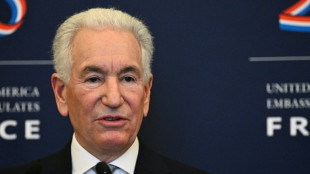
-
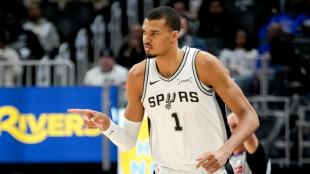 Spurs overpower Pistons in clash of NBA's form teams
Spurs overpower Pistons in clash of NBA's form teams
-
Inoue to fight Nakatani in Tokyo in May: reports
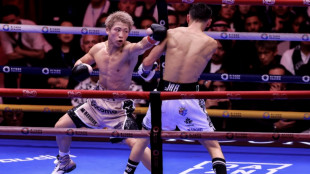
-
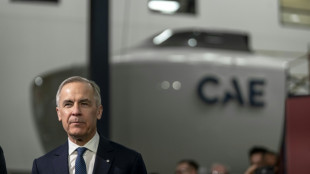 Canada PM to push trade, rebuild fractured ties in India trip
Canada PM to push trade, rebuild fractured ties in India trip
-
Asian markets mixed as traders weigh AI and tariffs outlook

-
 Votes may 'melt like snow': Reform, Greens eye Labour UK bastion
Votes may 'melt like snow': Reform, Greens eye Labour UK bastion
-
Venezuela says exiles welcome to return following mass amnesty
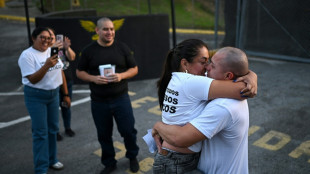

Peaceful Czechs grapple with youth violence
When a 13-year-old boy pointed a gun at his teacher in a Czech school in January, she kept cool and slowly cornered him to let his classmates escape.
Police said she did everything right, using recent security training put in place as alarm has grown about bullying, attacks and even murders committed by schoolchildren.
"Violence and youth mental problems are growing dramatically at Czech schools," the education ministry said in a document sent to schools earlier this year to help them cope with potential dangers.
While experts warn that little data on youth violence across Europe exists, it has started to make headlines regularly in the central European country that ranks 12th safest on the Global Peace Index.
The index takes into account conflicts and militarisation but also levels of perceived criminality and number of homicides.
Even "within Europe, we are a peaceful country", sociologist Martin Buchtik told AFP.
He cited "indifference to religion", ethnic homogeneity, a "functioning social system" and a general distaste for "radical solutions" as factors that generally keep Czechs cool.
- Frightening attacks -
Since a student killed 14 people and wounded 25 at Prague's Charles University in December 2023 in a shooting that shocked the nation, Czech schools have stepped up prevention programmes and cooperation with the police.
But cases keep coming up.
Last month, a 16-year-old boy stabbed two shop assistants to death with a knife he picked up on a shelf in an apparently random attack.
Also in February, police charged a 15-year-old boy who threatened to open fire at an elementary school in a northern city.
And within five days in January, police detained 10 minors suspected of attempting or plotting attacks at schools across the country of 10.9 million people.
Minors committed 1,080 violent crimes including 10 murders in 2024, police statistics show, a sharp growth from 701 violent crimes and seven murders in 2022.
The number of juvenile delinquents in the EU country has grown by 26 percent from 2019 to 2024.
Likewise in neighbouring Austria as well as in Slovenia, which also rank high on the global peace index, youth crime statistics show a rise.
This is in part due to increased awareness which has led to a rise in reporting, as well as more types of offences being recorded, authorities say.
- Quarter 'feel no joy' -
Jan Zufnicek, a psychologist at the Prague-based Primary Prevention Centre, said in a podcast recently that "more than half of Czech children do not have an adult at school that they would confide in."
He said mental disorders among children were on the rise, fuelled by the Covid-19 pandemic and lockdowns.
A poll of over 10,000 children conducted by the Anreva Solution agency in Prague last year showed many children are battling depression, anxiety and a low sense of well-being.
More than a quarter of pupils polled felt no joy in life.
Forensic psychologist Ludmila Cirtkova blames "an accumulation of several unfavourable factors", saying young delinquents suffered from a lack of functioning relationships.
Cirtkova added the consumption of violence on the internet played a role too, a view echoed by the education ministry which blames "a massive spread" of digital technologies and social media.
Cirtkova sees a way out in "good relationships between educators and children".
"But it takes time and energy to show interest in the joys and worries of children," she added.
"If every part of the child socialisation system fulfils its role, I suppose the tragic cases of violent attacks will be absolutely rare."
Legal philosopher Theo Gavrielides, who works on youth violence prevention, also said young people should not be demonised.
"Young people and teenagers are in the state of development, hence there are a lot more things that can be done to prevent violence," he added.
D.Moore--AMWN



